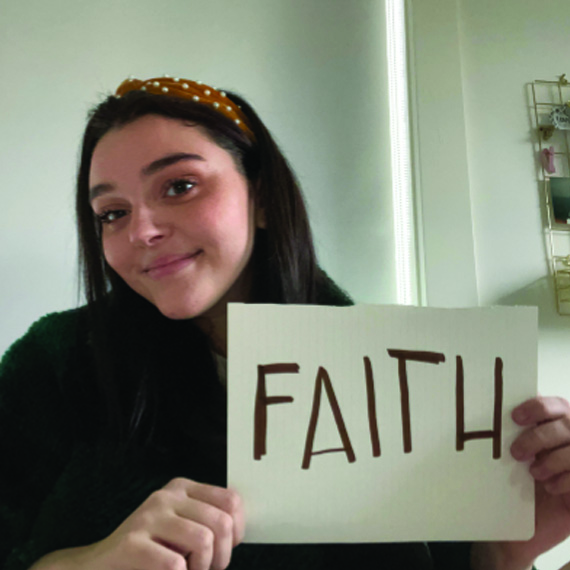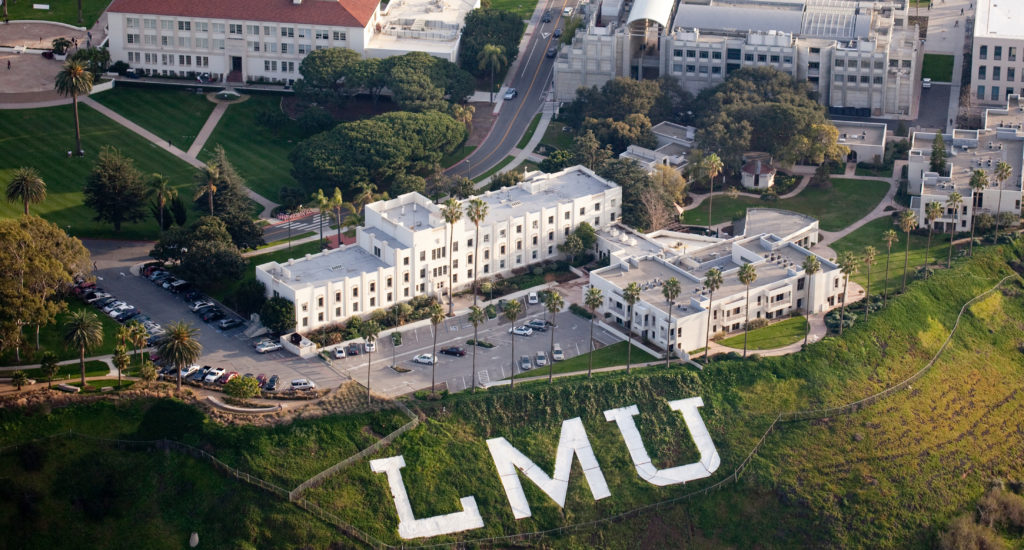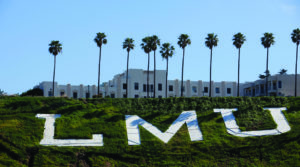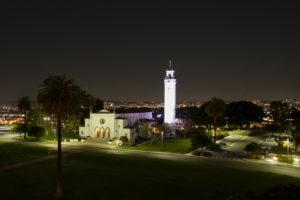MISSION AND MINISTRY | Gabi Jeakle ’23 spent her last week of Christmas break learning about women’s rights and climate change in El Salvador. Jeakle, an English major, submitted a student reflection about the virtual experience.
This week, I had the privilege of being a part of the Alternative Breaks and Ignacio Companions virtual immersion trip to El Salvador. It was led by Andy Barrientos-Sandoval, Francisco Mena Ugarte, and Rafael Garcilazo Alcides, staff members from Crispaz. Crispaz is a faith-based organization dedicated to building bridges of solidarity between the Church and those living in marginalized communities throughout the world.
We spent five days across a virtual bridge, as Ugarte called it, learning about women’s rights and climate change in El Salvador. The trip was a collaboration between the Center for Service and Action’s AB program, and Campus Ministry’s IC program, truly asserting the importance of the connection between faith and action.
Growing up, I was taught that Jesuit values can be distilled into a pretty simple sentiment: God gave you a brain, and you should use it. It is in learning and education that God is present. The more Jesuit education I encountered, the more I realized that an equally important aspect of Jesuit teachings is an active commitment to bridging the gap between the world in which we live, and the world in which we ought to.
Alternative breaks and Ignacio Companions reframe the notion of a school-sponsored trip abroad so that, even over zoom, we can accomplish the goals of the programs. We are here to learn. The idea of community has shifted, but I think it’s a fair claim to assert that the idea of community is constantly shifting, so a virtual program need not be any less impactful than one in person.
In the midst of COVID-19, this trip does not just ask how we can participate in a socially distant way, but how the very need for Alternative Breaks has changed. COVID-19 has specifically impacted historically marginalized communities all over the world, but particularly in America. As we all sat in our respective homes, talking about our various plans that had been put on hold do to the inconvenience of the pandemic, Frasisco reminded us, “One of the things we cannot put on hold is solidarity.”
There were tearful moments, as we listened to brutal stories of mothers losing children, and women facing horrific violence. Behind the tears, however, was not just sadness, but resilience, and unwavering faith. These women, courageously telling their stories, was an act of faith. All through the stories though, there was tremendous faith. Faith in the good of man, faith in the work of justice, and above all, faith in God. God who, though has not always made life easy, has always made himself present.
Ugarte explained that the question is not of God’s existence, but of his instance. It is the job of a Catholic, a Christian, or a member of a community like LMU, devoted to Jesuit values, to seek justice in the name of God. To use the brain God has given us to learn about why action must be taken. This week gave me the chance to learn, not just about injustices that need to be remedied, but about the resilience that lies within faith. I leave this week full of knowledge, questions, passion and faith.




